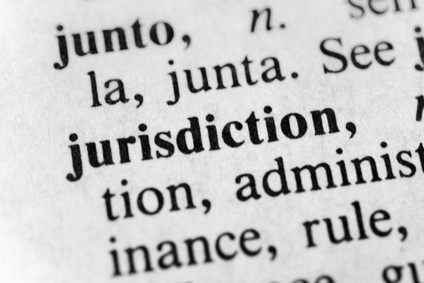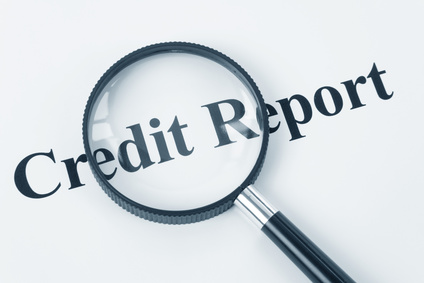The U.S. Court of Appeals for the Ninth Circuit recently held that the term automatic telephone dialing system (“ATDS”), as defined by the federal Telephone Consumer Protection Act, includes devices that store telephone numbers to be called, “whether or not those numbers have been generated by a random or sequential number generator.” Accordingly, the Ninth Circuit vacated the trial court’s order dismissing the plaintiff’s putative class action asserting violations of the TCPA, 47 U.S.C. § 227, et seq. A copy of the opinion in Marks v. Crunch San Diego, LLC is available at: Link to Opinion. In 2012, the plaintiff signed up…
The U.S. Court of Appeals for the Eleventh Circuit held that 12 U.S.C. § 1715z-20(j) did not alter or limit the lender’s right to foreclose under the terms of the valid reverse mortgage contract where the non-borrower spouse was still living in the home. Accordingly, the Eleventh Circuit affirmed the trial court’s dismissal of the plaintiff’s petition for injunctive relief to prevent the foreclosure sale. A copy of the opinion in The Estate of Caldwell Jones, Jr. v. Live Well Financial, Inc. is available at: Link to Opinion. A borrower obtained a reverse mortgage that was subsequently assigned to the defendant…
In a dispute over surplus funds from a judicial foreclosure property sale, the Florida Supreme Court recently held that a subordinate lienholder’s claim to surplus funds — filed 61 days after the public auction — was timely and superior to the claim of the former record owners of the property. In so ruling, the Florida Supreme Court resolved a certified conflict between Florida’s Second and Fourth District Courts of Appeal by concluding that the 60-day timeframe for filing a claim to surplus funds under the provisions of chapter 45, Florida Statutes, begins upon the clerk’s issuance of the certificate of…
The U.S. Court of Appeals for the Ninth Circuit recently reversed a trial court’s order remanding a putative class action lawsuit to state court on the ground that the defendant removing party failed to prove that the amount in controversy exceeded $5 million, as required for jurisdiction under the Class Action Fairness Act (CAFA). In so ruling, the Ninth Circuit held that the amount in controversy for jurisdiction under CAFA includes all attorney’s fees that the plaintiff would be entitled to under a contract or statute, including future fees incurred after the date of removal. A link to the opinion…
The U.S. Court of Appeals for the Eighth Circuit recently affirmed summary judgment in favor of a bank that was sued by a putative class alleging discriminatory employment practices that supposedly violated Title VII of the Civil Rights Act of 1964 and the Iowa Civil Rights Act. In so ruling, the Court held that the plaintiffs failed to establish a prima facie case of disparate impact because even if the bank’s policy of summarily terminating applicants or employees with a criminal conviction involving dishonesty or breach of trust had a disparate impact, the bank’s decision to comply with the applicable…
The U.S. Court of Appeals for the Fifth Circuit held that a civil investigative demand (CID) issued by the Consumer Financial Protection Bureau did not adequately advise the respondent of the nature of the conduct constituting the alleged violation under investigation and the provision of law applicable to such violation. Accordingly, the Fifth Circuit reversed the ruling of the trial court granting the CFPB’s petition for an order to enforce the CID. A copy of the opinion in Consumer Financial Protection Bureau v. The Source for Public Data, L.P. is available at: Link to Opinion. Under 12 U.S.C. § 5562(c)(1), the…
The U.S. Court of Appeals for the Eighth Circuit recently held that a consumer waived his right under the federal Fair Debt Collection Practices Act (FDCPA) to cease further communications by calling the debt collector and asking questions about the underlying debt. A copy of the opinion in Scheffler v. Gurstel Chargo, P.A. is available at: Link to Opinion. A law firm obtained a judgment against a debtor in connection with a credit card debt. The debtor was a former debt collector and had litigated a number of FDCPA claims against other debt collectors. The law firm mailed a garnishment notice to the debtor’s credit…
The U.S. Court of Appeals for the Seventh Circuit held that the trial court erred when it reduced the plaintiff’s punitive damages award without giving him the option of a new trial on damages. Accordingly, the Seventh Circuit reversed the ruling of the trial court, and remanded the matter for the court to offer the plaintiff the option of a new trial on damages. A copy of the opinion in Beard v. Wexford Health Sources, Inc. is available at: Link to Opinion. An inmate plaintiff filed a complaint against members of a prison’s medical staff and administrative team alleging they…
7th Cir. Holds Plaintiff’s Settlement of Parallel Claim Against Another Defendant Mooted FDCPA Claim

The U.S. Court of Appeals for the Seventh Circuit recently reversed a judgment against a debt collector, finding that the plaintiff’s settlement with the creditor for the same indivisible injury mooted the plaintiff’s federal Fair Debt Collection Practices Act (FDCPA) claims for statutory damages, attorneys’ fees, and costs against the debt collector. A copy of the decision in Portalatin v. Blatt, Hasenmiller, Leibsker & Moore, LLC is available at: Link to Opinion. As you may recall, the FDCPA requires a debt collector in the circumstances relevant to this appeal to file a complaint “only in the judicial district or similar legal…
The U.S. Court of Appeals for the Ninth Circuit recently held that the plaintiff carries the burden of proving the debt collector’s net worth to obtain statutory damages in a class action under the federal Fair Debt Collection Practices Act (FDCPA), 15 U.S.C. § 1692, et seq. A copy of the opinion in Tourgeman v. Nelson & Kennard is available at: Link to Opinion. A consumer financed the purchase of a computer through an installment loan. When the consumer defaulted, the creditor charged off the account and sold the debt to a third party. The third party referred the account to a law…
The U.S. Court of Appeals for the Eleventh Circuit recently held that the reporting of a mortgage account as past due and delinquent during a forbearance plan was neither inaccurate nor materially misleading under the federal Fair Credit Reporting Act (FCRA), 15 U.S.C. § 1681, et seq. A copy of the opinion in Felts v. Wells Fargo Bank, N.A. is available at: Link to Opinion. The plaintiff borrower lost her job and enrolled in an unemployment forbearance plan with her mortgage loan servicer. The forbearance plan called for “monthly forbearance plan payments” of $25 for a period of six months. The…
The U.S. Court of Appeals for the Seventh Circuit recently held that service of a motion for default judgment directly upon a plaintiff consumer known to be represented by counsel did not violate the federal Fair Debt Collection Practices Act, where the plaintiff’s attorney had yet to file a formal appearance. In so ruling, the Seventh Circuit reversed the trial court’s judgment in favor of the consumer because the state procedural rule at issue required the motion to be served directly upon the consumer, thus triggering the safe harbor provision of subsection 1692c(a)(2) of the FDCPA, which prohibits direct contact with…











